Large parts of Africa are suffering from harsh droughts. Last month, it was reported that at least 55 elephants died in Zimbabwe due to lack of food and water. The latest toll has risen to 105.
Attention: the pictures may be disturbing.

A marabou stork stands on an elephant carcass at a watering hole inside Hwange National Park, in Zimbabwe, October 23, 2019.
A marabou stork stands on an elephant carcass at a watering hole inside Hwange National Park, in Zimbabwe, October 23, 2019.
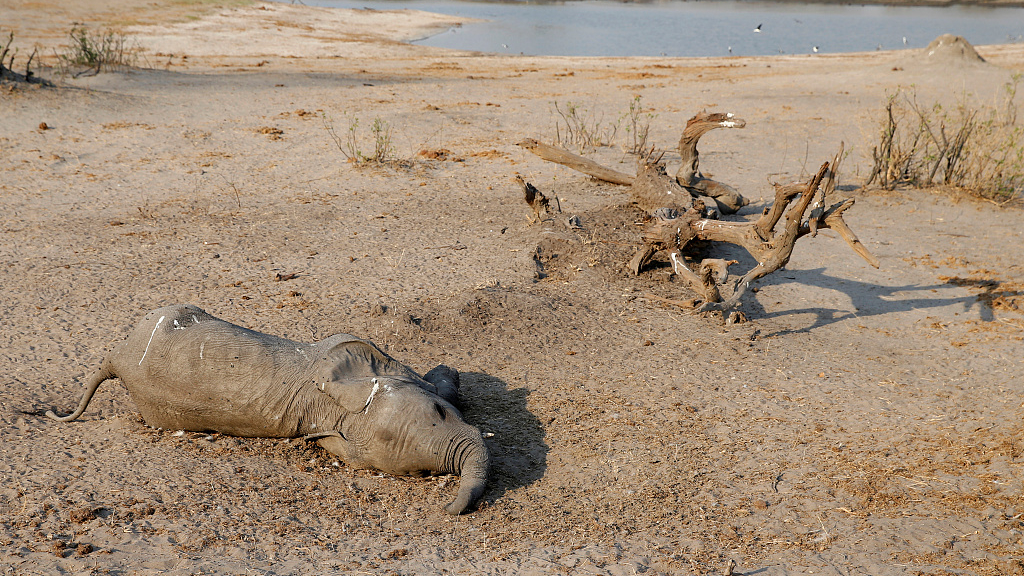
An elephant carcass is seen near a watering hole inside Hwange National Park, in Zimbabwe, October 23, 2019.
An elephant carcass is seen near a watering hole inside Hwange National Park, in Zimbabwe, October 23, 2019.
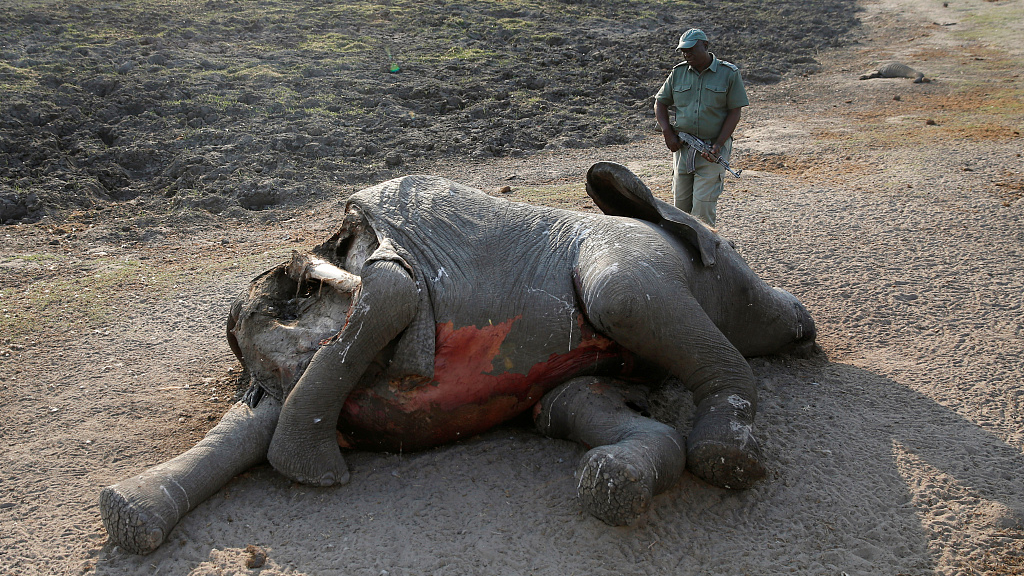
A ranger checks an elephant carcass at a watering hole inside Hwange National Park, in Zimbabwe, October 23, 2019.
A ranger checks an elephant carcass at a watering hole inside Hwange National Park, in Zimbabwe, October 23, 2019.
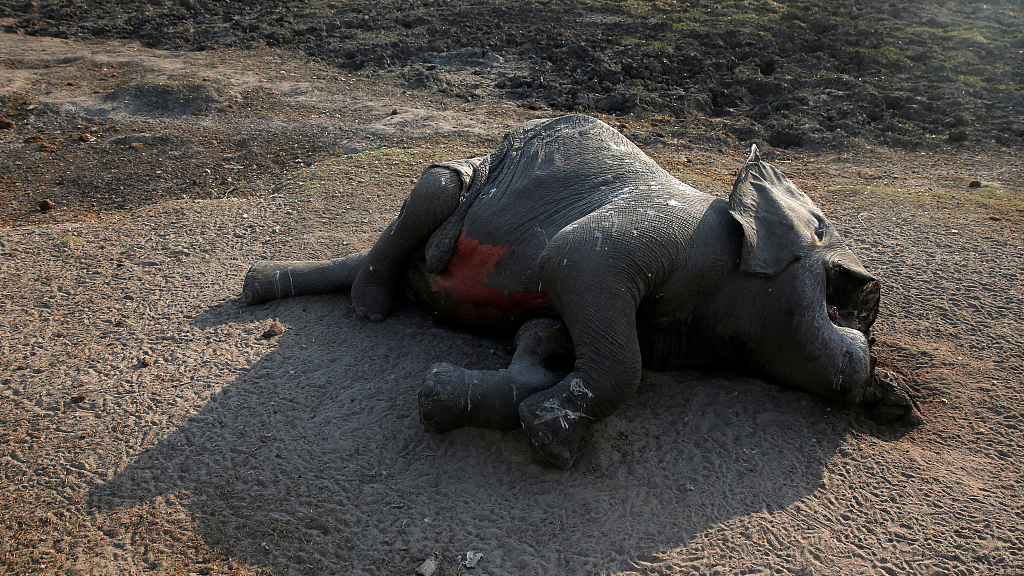
An elephant carcass is seen near a watering hole inside Hwange National Park, in Zimbabwe, October 23, 2019.
An elephant carcass is seen near a watering hole inside Hwange National Park, in Zimbabwe, October 23, 2019.
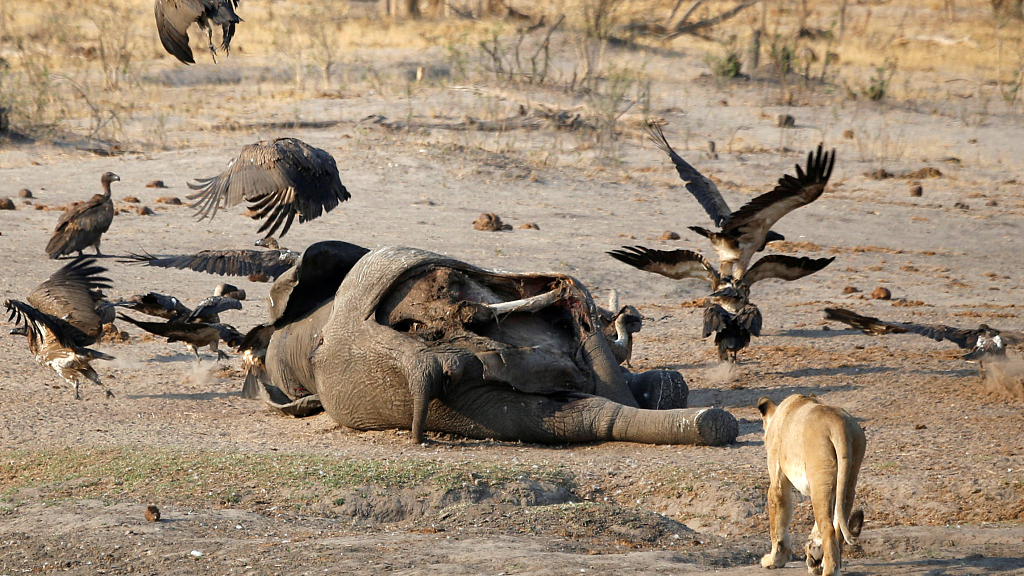
A lion is seen approaching an elephant carcass at a watering hole inside Hwange National Park, in Zimbabwe, October 23, 2019.
A lion is seen approaching an elephant carcass at a watering hole inside Hwange National Park, in Zimbabwe, October 23, 2019.
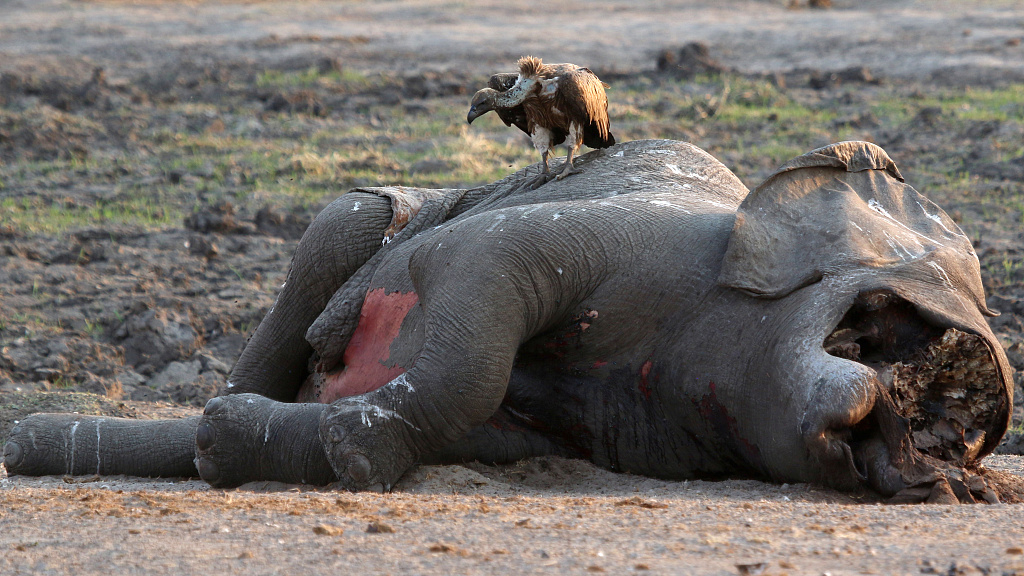
A vulture stands on an elephant carcass at a watering hole inside Hwange National Park, in Zimbabwe, October 23, 2019.
A vulture stands on an elephant carcass at a watering hole inside Hwange National Park, in Zimbabwe, October 23, 2019.
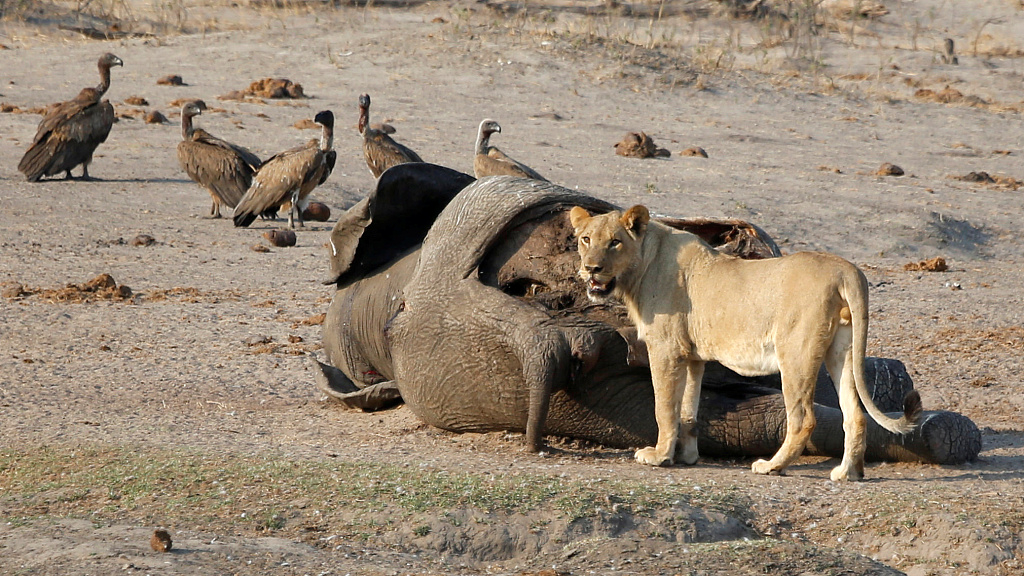
A lion is seen approaching an elephant carcass at a watering hole inside Hwange National Park, in Zimbabwe, October 23, 2019.
A lion is seen approaching an elephant carcass at a watering hole inside Hwange National Park, in Zimbabwe, October 23, 2019.
The impact is being felt at Hwange National Park, Zimbabwe's largest game reserve, as the country faces one of the worst droughts in its history.
"Since September, we have lost at least 55 elephants in Hwange National Park due to starvation and lack of water," Zimbabwe National Parks spokesman Tinashe Farawo told AFP on October 22. Only two weeks later, the number has almost doubled.
Farawo said the park was overpopulated and that food and water was scarce "due to drought," which is blamed on the El Nino weather cycle. The elephants are not the only groups suffering from drought. More than five million rural Zimbabweans – nearly a third of the population – are at risk of food shortages before the next harvest in 2020, the United Nations has warned.
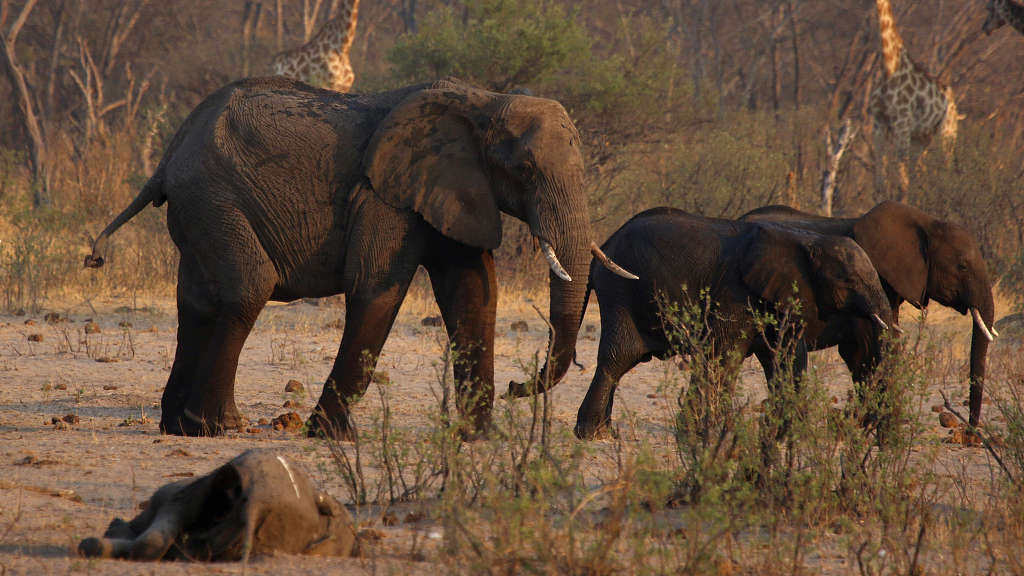
A group of elephants and giraffes walk near a carcass of an elephant at a watering hole inside Hwange National Park, in Zimbabwe, October 23, 2019.
A group of elephants and giraffes walk near a carcass of an elephant at a watering hole inside Hwange National Park, in Zimbabwe, October 23, 2019.
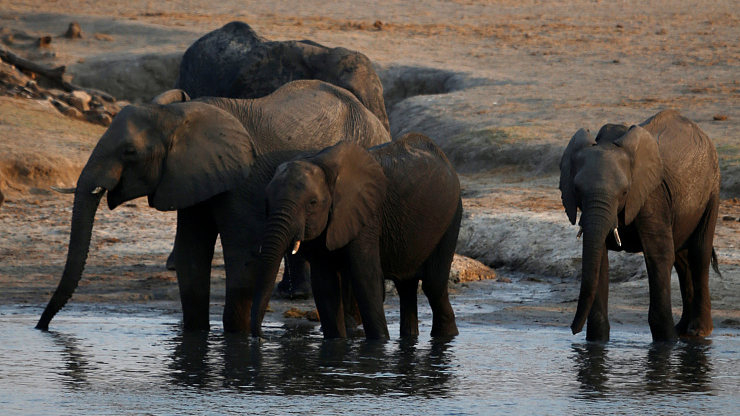
A group of elephants are seen at a watering hole inside Hwange National Park, in Zimbabwe, October 23, 2019.
A group of elephants are seen at a watering hole inside Hwange National Park, in Zimbabwe, October 23, 2019.
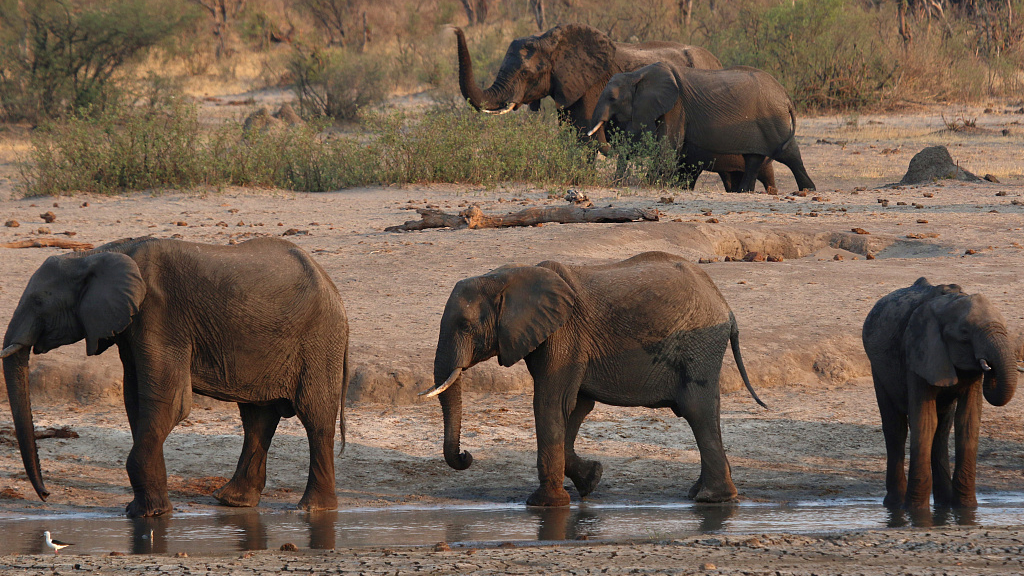
A group of elephants are seen near a watering hole inside Hwange National Park, in Zimbabwe, October 23, 2019.
A group of elephants are seen near a watering hole inside Hwange National Park, in Zimbabwe, October 23, 2019.
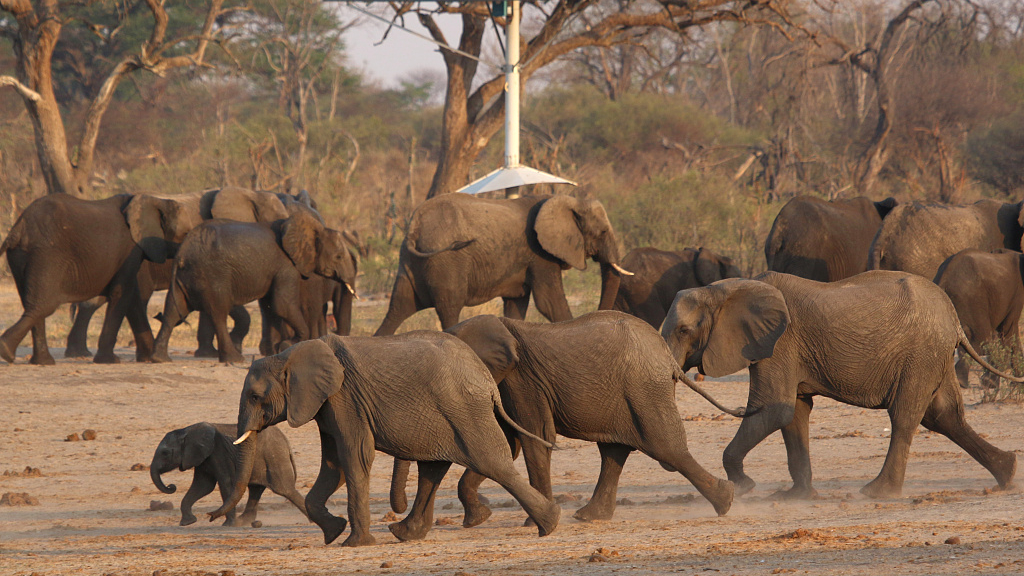
A group of elephants walk near a solar panel at a watering hole inside Hwange National Park, in Zimbabwe, October 23, 2019.
A group of elephants walk near a solar panel at a watering hole inside Hwange National Park, in Zimbabwe, October 23, 2019.
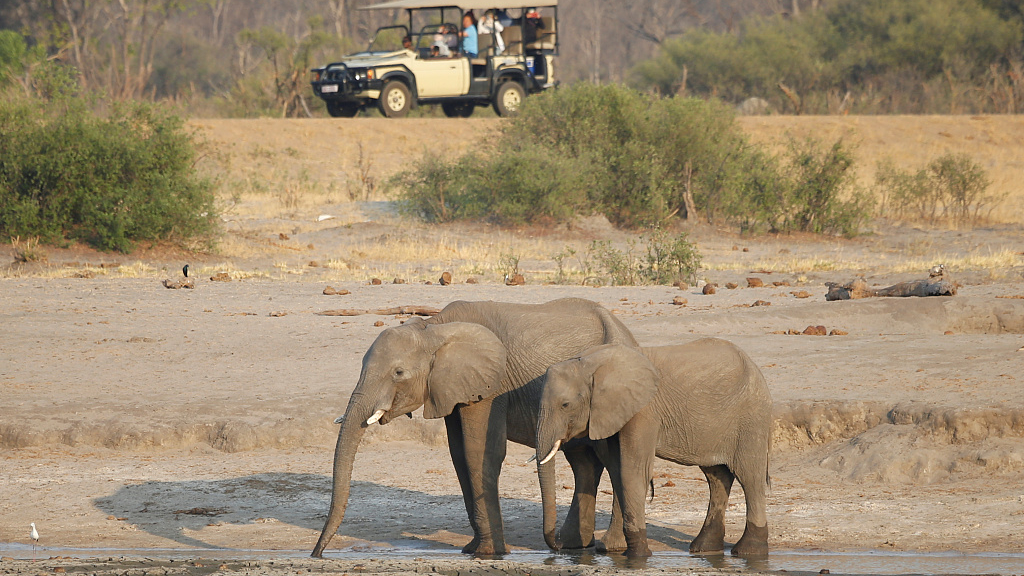
Tourists look at a group of elephants at the Hwange National Park, in Zimbabwe, October 23, 2019.
Tourists look at a group of elephants at the Hwange National Park, in Zimbabwe, October 23, 2019.
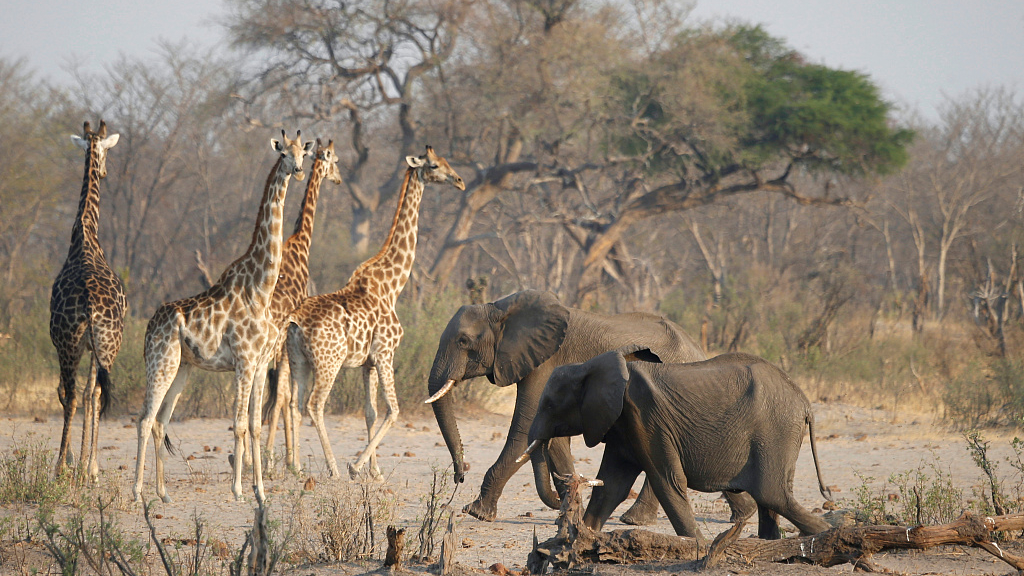
A group of elephants and giraffes walk near a watering hole inside Hwange National Park, in Zimbabwe, October 23, 2019.
A group of elephants and giraffes walk near a watering hole inside Hwange National Park, in Zimbabwe, October 23, 2019.

A group of elephants are seen at a watering hole inside Hwange National Park, in Zimbabwe, October 23, 2019.
A group of elephants are seen at a watering hole inside Hwange National Park, in Zimbabwe, October 23, 2019.
Africa's elephant numbers have dropped from around 415,000 to 111,000 over the past decade, mainly due to poaching for ivory, according to the International Union for Conservation of Nature (IUCN).
But Zimbabwe, like other countries in the southern African region, is struggling with overpopulation.
"Hwange was meant for 15,000 elephants but at the moment we are talking of more than 50,000," Farawo said.
"The situation is dire. We are desperately waiting for the rains."

A ranger checks an elephant carcass at a watering hole inside Hwange National Park, in Zimbabwe, October 23, 2019.
A ranger checks an elephant carcass at a watering hole inside Hwange National Park, in Zimbabwe, October 23, 2019.
An adult elephant drinks 680 liters (180 gallons) of water per day on average and consumes 450 kilograms (990 pounds) of food.
Hungry elephants have been breaking out of Zimbabwe's game reserves and raiding human settlements in search for food, posing a threat to surrounding communities.
Farawo said 200 people have died in "human-and-animal conflict" in the past five years, and "at least 7,000 hectares (17,300 acres) of crop have been destroyed by elephants."

A giraffe walks near a carcass of an elephant at a watering hole inside Hwange National Park, in Zimbabwe, October 23, 2019.
A giraffe walks near a carcass of an elephant at a watering hole inside Hwange National Park, in Zimbabwe, October 23, 2019.
(All pictures via VCG. Courtesy: Reuters/Philimon Bulawayo)
(If you want to contribute and have specific expertise, please contact us at nature@cgtn.com.)
Source(s): AFP